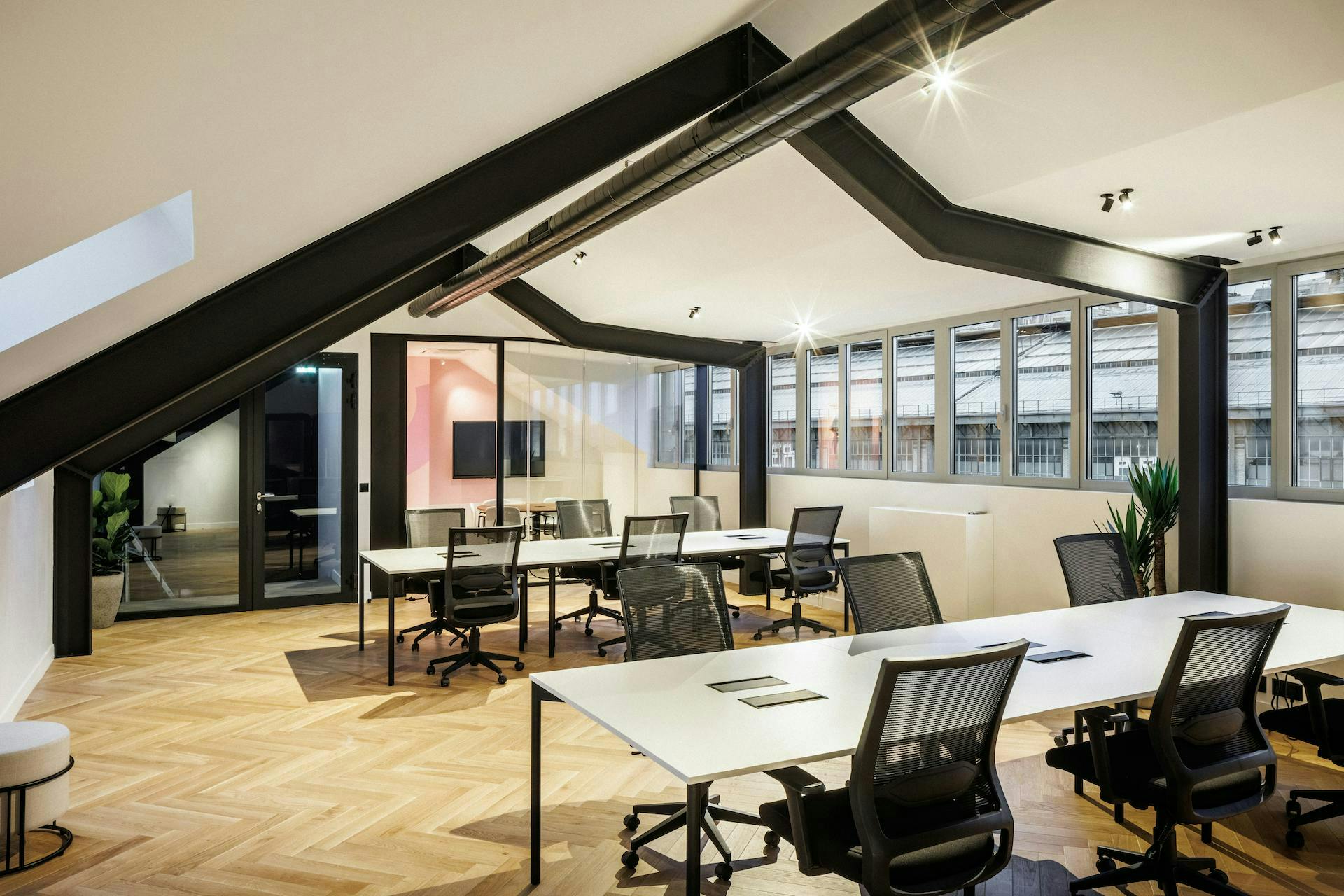
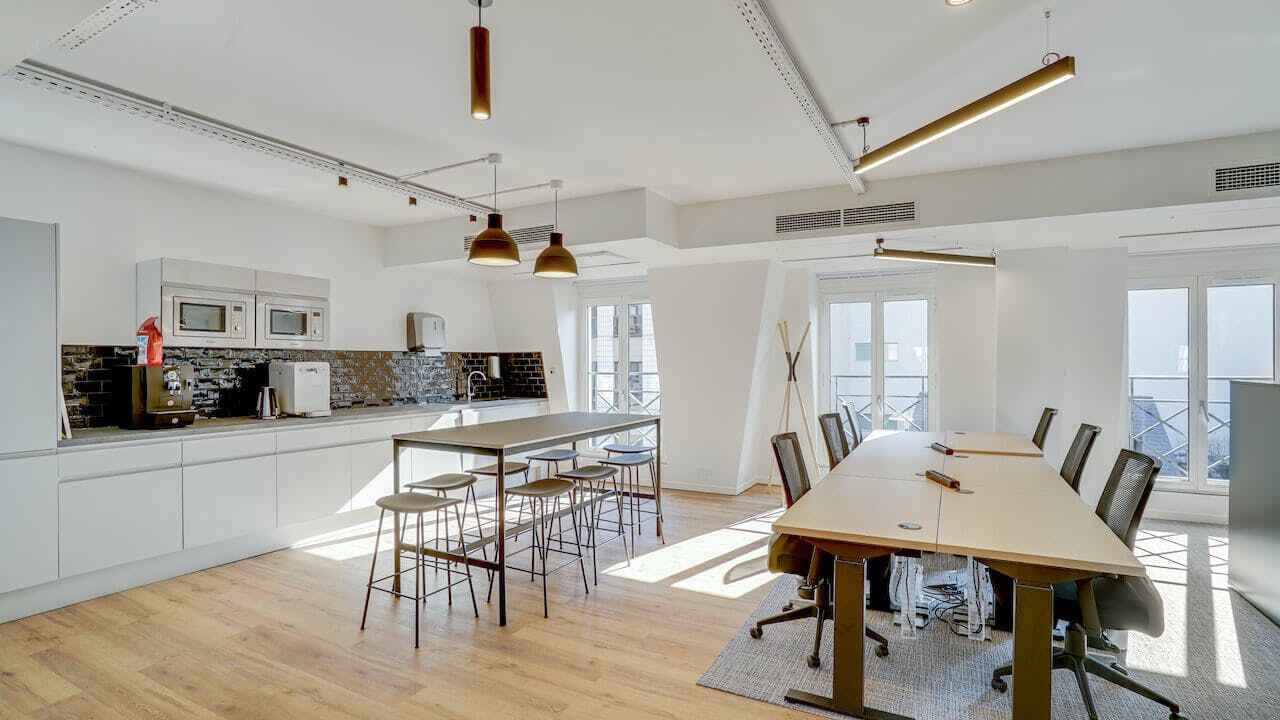
Help, my offices are no longer suitable for my needs!
Covid-19 has created a storm. Partial unemployment, teleworking, social distancing... It's panic on board! At the sight of your empty offices, far from your employees, you have doubts about the future. Perhaps it's time to reorganise? Or maybe you should take a trip to a different office? What are the solutions for adapting your workspaces to this new situation? Let Deskeo, the office property expert, help you take stock.
The health crisis will have consequences for all companies. Synonymous with opportunities for some, a halt for others, it is likely to disrupt the way the French work and therefore transform our relationship with offices.
All decision-makers are particularly concerned about the future of teleworking and the impact it will have on their organisation. According to a Deskeo survey of nearly 3,000 professionals last May, 32% of French people would like to telework one or two half-days a week after the deconfinement phase.
Such a societal change will have repercussions on the way companies envisage their workspaces. Deskeo helps you ask the right questions today to make the right decisions tomorrow.
1. Rescue plan: renegotiate your lease
In rough seas, the first thing to do is to reduce sail. With your offices, it's much the same. Renegotiating the terms of your contract can help you gradually get your head above water and save you from having to move... provided you manage it well.
Staying on board, but renegotiating your rent
Like the majority of French businesses, there is a good chance that you will be locked into a "3-6-9 lease". In other words, a commercial lease that follows the triennial revision mechanism. Every 3 years, you and your landlord have the opportunity to renegotiate the terms of your contract, including the rent. If you want to keep your office space, the first thing to do is to look at the next review date of your lease. However, you can request a review of your rent at any time. Article 1195 of the Civil Code specifically states that the parties can renegotiate their contract if a change in circumstances that was unforeseeable on the day the contract was concluded makes performance excessively onerous for one party.
This option looks attractive on paper. But in practice it is much more complex. In the little game of negotiation, you could lose out. If you are located in an area in demand in Paris or Lyon, you should bear in mind that the vacancy rate is very low, with more demand than supply. Your rent will therefore be difficult to negotiate and you could well set your relationship with your landlord on fire. Don't drown yourself in risky negotiations, try to get a grace period instead.
The franchise as a beacon
To put all the odds on your side, here are some tips on understanding the psychology of your landlord. While lowering the rent may be a lesser evil for an SCPI, which has an interest in collecting an income (even a lower one) every month and avoiding any period of vacancy, the same cannot be said for institutional landlords. For these established players, who have often owned their property for decades, the vision is more distant. They value their properties as financial assets, and their first challenge is to maintain rental values at the highest possible level. For them, there is no question of accepting a fall in rent. It would be wiser to ask for a few months' rent-free period.
Better than the deferral or staggering of rents proposed by the government for micro-businesses, the franchise consists of free rent over a given period. Often granted to indirectly participate in the financing of renovation or fitting-out work, it takes on a whole new meaning in this period of global office reorganisation.
A few months' rent-free can help you through this difficult period. But beware, the owner must be happy with it. Remember, he is under no obligation to accept conditions that are not favourable to him. In exchange, offer to extend the length of your commitment, which will move the discussions in the right direction.
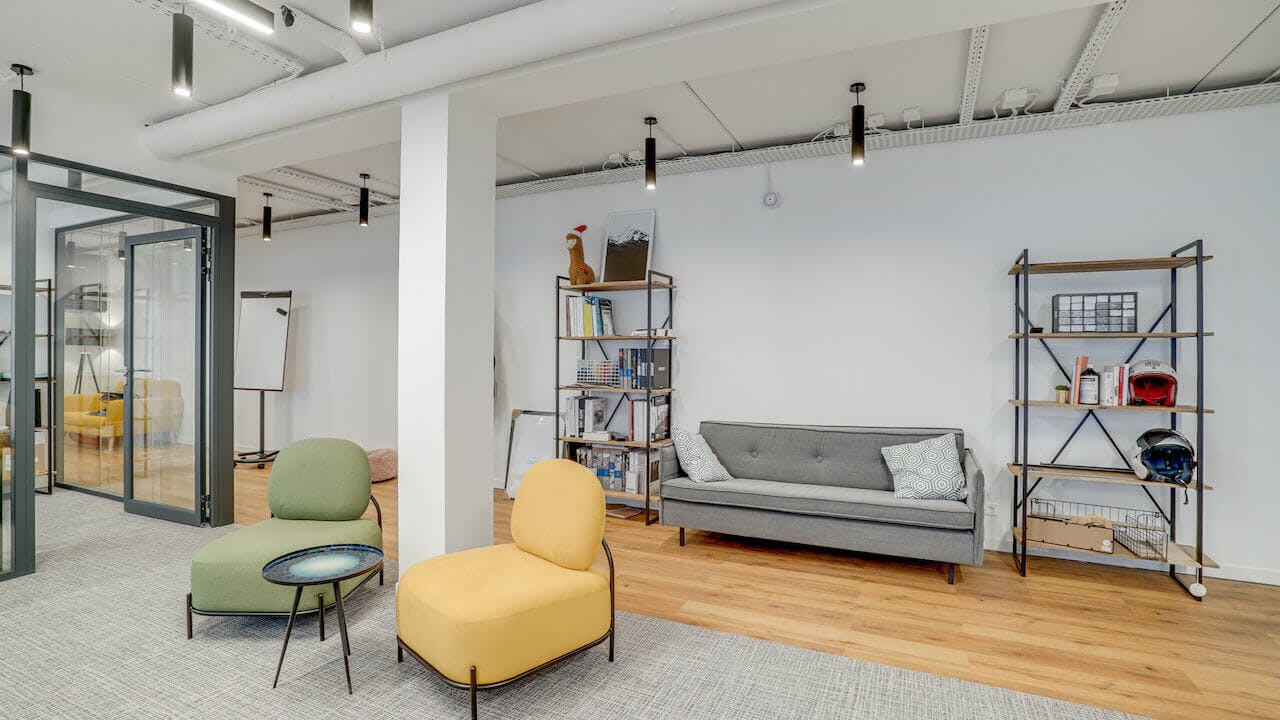
2. Call in sub-lease reinforcements
With some of your staff teleworking regularly or downsizing, you find yourself with an empty or unused space? Call in reinforcements! Subletting part of your premises can save you some time and avoid a sudden move. But beware, subletting is rarely a smooth ride...
Subletting: before taking the plunge, the landlord's agreement is required
Subletting your premises will have the advantage of reducing the cost of your rent and sharing your charges and taxes. A breath of fresh air if you are underwater! But this will not be done unless it is provided for in your lease and without the agreement of your landlord. As for private individuals, subletting is in principle prohibited. According to Article L 145-31 of the Commercial Code, to take advantage of this, you must
- insert a specific clause in the lease contract
- or have the express authorisation of your landlord.
Important: Do not neglect this legal obligation, it will save you in case of problems.
Finally, do not see subletting as a way of enriching yourself; the rent cannot exceed the amount allocated to you.
Also note that if an unoccupied part of your offices can be sublet independently (such as a floor, for example), Deskeo can take over this area so that you can keep your offices without having to move.
A bad idea?
When you sublet your offices, you remain the lessee and are therefore still responsible for all the obligations associated with the offices you sublet. Damage, nuisance, non-payment, you alone are responsible. A problem with your subtenant? The landlord will turn to you.
In reality, subletting is generally a good deal for the subtenant and a hassle for the tenant. You will have to manage the search for a company willing to accept your conditions, without any guarantee that the cohabitation will go well. You will continue to maintain the space that you have already furnished and fitted out, hoping to need it in the future, but when? It is difficult to anticipate exactly...
On the other hand, your host will be able to enjoy your office space at the best price and with no real commitment. So, unless you find a 100% reliable sub-tenant, the good plan of sub-letting is likely to turn into a disappointment. This is especially true now that the supply of sublet space is rising sharply as a result of deconfinement. You will have even more competition and therefore more difficulty in finding the rare pearl... Beware, you are in for a bumpy ride!
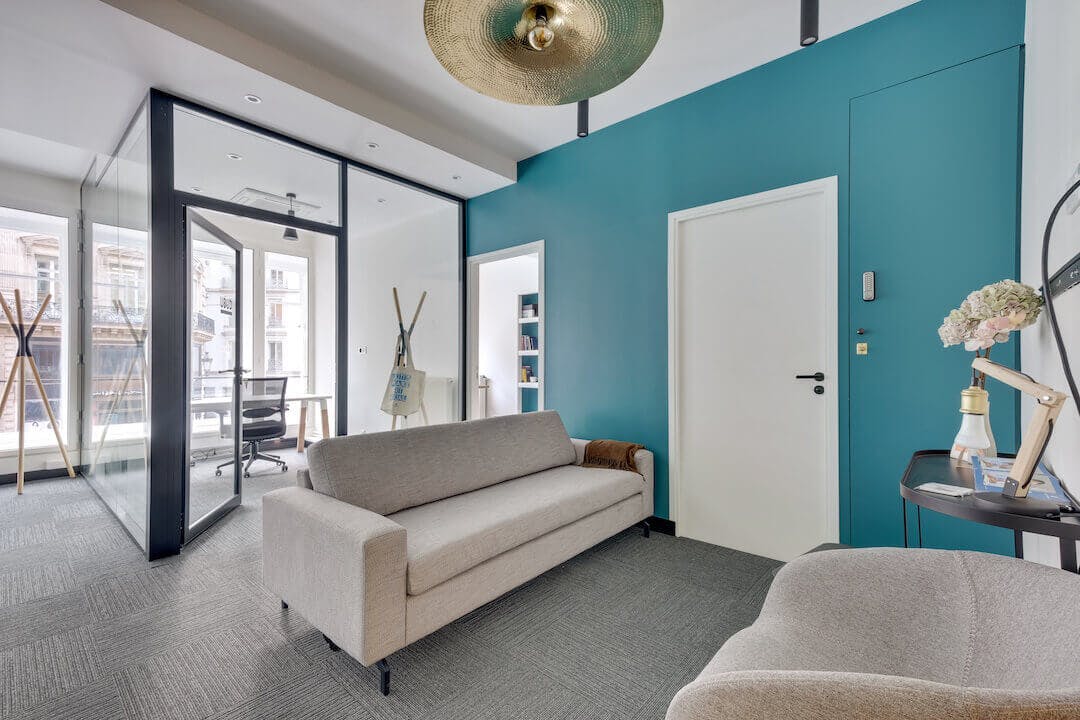
3. I've decided to change offices
Your decision is made! After all, these offices no longer suit you. Your team has grown or become leaner, many people are teleworking and some will remain so... In short, you want a place that suits your needs. It's up to you to decide where you want to go, but before you set sail, it's important to prepare for what comes next.
The search for a successor
You have decided to move to new offices. Good, but before you move, you need to leave your current offices. By definition, in a 3-6-9 lease, you have the option to terminate your contract every 3, 6 or 9 years. If this deadline is approaching and you are happy with the deadlines, don't forget to inform your landlord by registered letter six months before the end of the three-year period.
Fortunately, there are two ways out: either you and your landlord can agree on early termination, or you can find a successor to take over your lease. The aim of this operation is simple: to meet the needs of the landlord (rent until the end of the agreed lease), and to allow you to free yourself from your commitment.
But then again, that's easier said than done. Finding the right replacement is not easy. We strongly advise you to call on a business property consultant to help you with this task. Their services do cost money, but they will save you a lot of time and energy. Especially as the candidate will have to agree to fulfil the same conditions as those in your lease: monthly rent and charges, security deposit... without benefiting from months' rent-free period to carry out works (the owner will have no interest in accepting this additional condition). Once you've found the perfect candidate, all you have to do is convince your landlord to accept him or her in your place.
Before you weigh anchor: the refit
The crew has deserted and you are ready to leave the ship. Before leaving, you are obliged to restore the premises to their original state. A situation rarely anticipated by tenants. You and your landlord must agree on the configuration and condition of the premises (perfect, excellent, good, used condition, etc.). Condition is a subjective concept that often leads to debate. This debate is often heated when it comes to distinguishing obsolescence (for which the lessor is responsible) from a lack of maintenance (for which the lessee is responsible). And the bill can be very high!
To top it all off, you will have to pay two rents for several months, the time it takes to carry out work in your future premises and then to restore the old ones. Don't forget this detail, which could once again put a strain on your finances.
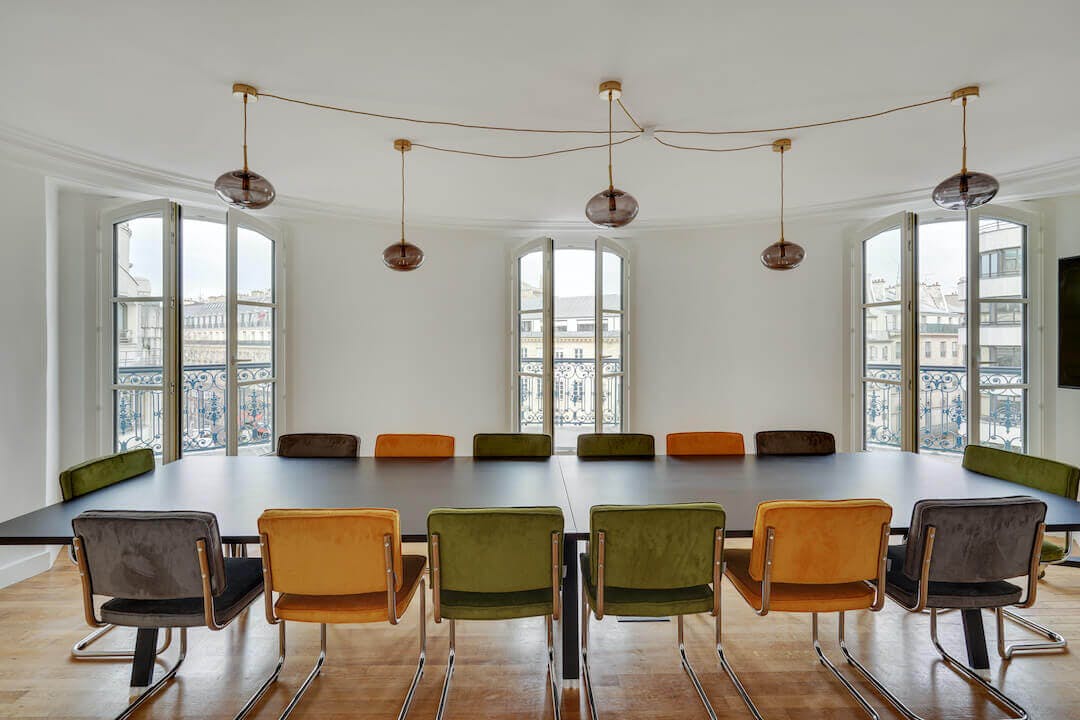
4. How to avoid complications?
More than ever before, workplaces as we have known them up to now are being called into question. Health measures, teleworking, sizing, flex office... the office is under pressure.
Despite this, real estate will continue to be one of the main items of expenditure for companies, generally the second largest after salaries. In order to make the right decisions in times of crisis, here are the criteria we advise you to look out for in your next office search:
- Commitment. As mentioned throughout this article, avoid getting stuck in the future with too long a commitment. The future is uncertain, it is less and less clear what the future will be like. More than ever, you need to be able to adapt quickly to deal with the unexpected. By signing a traditional lease, you are committing yourself for nine years, with all the disadvantages that this implies. Favour flexible solutions such as those offered by Deskeo to reduce the duration of firm commitments and give you the possibility to evolve at your own pace.
- Investments. Real estate is the second largest expense item for companies after salaries. Keep in mind that, when all is said and done, the total cost of an office rental is usually double the rent charged. The all-inclusive service contracts offered by Deskeo allow you to limit your investments. No more huge CAPEX expenses in the first year (works, furniture...), you only pay for what you use throughout your contract.
- Size. How much space do you really need in the short and medium term? The practice of teleworking within your teams, even on a part-time basis, will inevitably have an impact on your space requirements. Consider this beforehand so that you don't end up with empty offices half the time... Opting for a smaller surface area may allow you to invest in better located offices or in the comfort of your employees: layout, equipment, decoration, services, etc. Idea: Have you thought about flex-office or "no fixed office"? Our latest study showed that 79% of French people are prepared to sacrifice their personal office if it allows them to work more remotely...
- Location. As our recent survey shows, saving travel time is what the French value most about teleworking. In the future, your employees will become more and more demanding about the proximity of their workplace to their home. Therefore, favour offices in central, well-connected areas.
- The layout. We are moving towards a world in which employees will have more opportunities to work from home. In this new environment, the primary function of offices is changing. In the future, the challenge will be to provide what your remote teams will lack in the office: a comfortable and equipped environment in which to collaborate effectively. The layout, decoration and choice of furniture will be crucial in making your employees want to come to the office. Your offices reflect your culture, your vision of the world, look after them!
To sum up, your main issues for your next office are reduced time commitment and investment. You now have all the cards in your hand to get started. Now it's up to you!

Contact Us
We find your Perfect fit!
